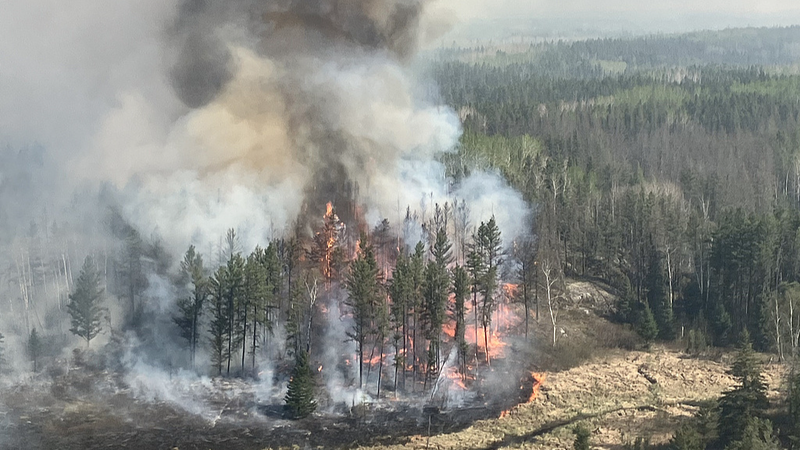Global forest ecosystems are under growing threat as a new study reveals that fewer than one-third of burned forests recover within seven years of a major wildfire.
Published in Nature Ecology & Evolution, the research highlights key drivers of forest resilience across climates and time, uncovering an increasing vulnerability to wildfire severity that could accelerate global forest degradation.
A team led by Chen Ziyue from Beijing Normal University, Wu Zhaoyang from the Institute of Geographic Sciences and Natural Resources Research of the Chinese Academy of Sciences, and Josep Penuelas of Spain's Autonomous University of Barcelona analyzed 3,281 major wildfire events worldwide using a hybrid methodological framework.
Since 2010, median wildfire severity rose by 42.9 percent in arid regions and 54.3 percent in boreal zones. Western North America, northern-central Siberia and southeastern Australia faced the toughest impacts.
Post-fire recovery rates have also dipped sharply: stalled recovery areas climbed from 22.6 percent to 25.6 percent, with canopy structure and productivity showing particular difficulty in bouncing back.
The study warns that weakened resilience could unleash catastrophic losses in biodiversity, biological resources and carbon sinks—far exceeding direct fire emissions and profoundly disrupting global carbon cycles. Intensifying heatwaves and droughts only compound these challenges.
“Natural recovery mechanisms can no longer cope with intensifying climate pressures,” says Chen, calling for systematic international interventions during critical post-fire phases, including science-led reforestation and ecological restoration projects.
Australian expert David Bowman from the University of Tasmania describes it as "an influential paper about a deeply serious topic."
As wildfires intensify worldwide, coordinated action is vital to safeguard forests and carbon sinks for future generations.
Reference(s):
Wildfires slash global forest recovery capacity, study warns
cgtn.com


